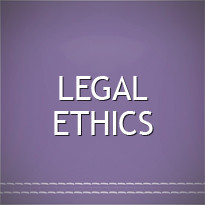Can't share this digest on Facebook? Here's why.
Daniel Liangco was a judge in San Fernando, Pampanga. He was dismissed from the bench in 2000 for various infractions. The Supreme Court further directed the Office of the Court Administrator to initiate disbarment proceedings against Liangco.
Liangco was removed as a judge because he acted on a Petition for Declaratory Relief filed by the local government of San Fernando, Pampanga without notifying the other party (a certain Hermogenes Gozun). Gozun’s house was demolished by the strength of Liangco’s decision. As a result, he filed an administrative case against Liangco.
During the investigation of the IBP, the other infractions of Liangco were discovered. He was once entrapped by the NBI for extortion. One of his witnesses, a local government official, even admitted that they used to go to his office in order to discuss on some cases pending before Liangco’s court.
The IBP recommended Liangco’s disbarment. Liangco filed a Petition for Review on Certiorari to question the recommendation of the IBP. He averred among others that the IBP used the same evidence against him which were used in the proceedings which led to his removal from the bench and that he was not able to actively participate in the IBP proceedings. Liangco also averred that Gozun withdrew his case against him.
ISSUE: Whether or not Liangco should be disbarred.
HELD: Yes. Membership in the bar is an integral qualification for membership in the bench, the moral fitness of a judge also reflects the latter’s moral fitness as a lawyer. A judge who disobeys the basic rules of judicial conduct also violates the lawyer’s oath. Only those who are “competent, honorable, and reliable” may practice the profession of law for every lawyer must pursue “only the highest standards in the practice of his calling”.
Disbarment proceedings are sui generis. As such, they render the underlying motives of complainant unimportant and of little relevance. The purpose of disbarment proceedings is mainly to determine the fitness of a lawyer to continue acting as an officer of the court and as participant in the dispensation of justice – an issue which the complainant’s personal motives have little relevance. For this reason, upon information of an alleged wrongdoing, the Court may initiate the disbarment proceedings motu proprio.
But Liangco was already removed as member of the bench for the same infractions, is it still proper to disbar him?
Yes. Laws dealing with double jeopardy or with procedure – such as the verification of pleadings and prejudicial questions, or in this case, prescription of offenses or the filing of affidavits of desistance by the complainant – do not apply in the determination of a lawyer’s qualifications and fitness for membership in the Bar.
The Court also notes that Liangco’s Petition for Review on Certiorari is an improper remedy in disbarment cases.


